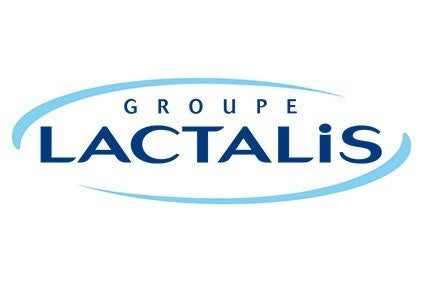The scrutiny on – and criticism of – Lactalis, the French giant that is the world’s third-largest dairy company, has intensified this week as the business battles to repair the reputational damage from the salmonella scandal that has engulfed the group.
However, the revelation this week some of the recalled formula still found its way onto the shelves of a number of France’s largest grocers has meant the opprobrium has also been directed at more of the supply chain than just the Laval-based behemoth.
And there is some concern consumer sentiment in export markets, especially China, could be affected, which other French infant-formula companies will be monitoring closely.
On 2 December, France’s consumer protection agency, the DGCCRF, announced 20 babies under six months had been infected with salmonella after consuming products made at a Lactalis plant in France and – in conjunction with the company – announced a recall of batches of infant milk marketed under three brands.
On 10 December, the agency reported five more cases of infection. Bruno Le Maire, France’s Economy Minister, said the measures put in place by Lactalis “were not likely to control the risk of contamination” and ordered a recall of products shipped for export, as well as certain batches manufactured at the plant since 15 February.

US Tariffs are shifting - will you react or anticipate?
Don’t let policy changes catch you off guard. Stay proactive with real-time data and expert analysis.
By GlobalDataLast week, the French weekly publication Le Canard Enchaîné claimed Lactalis knew of salmonella at the facility in Craon after internal investigations carried out in August and in November but, not being obliged to publish the information, kept it confidential. In between the two internal investigations, in September, the French Ministry of Agriculture was said to have visited the site and found no trace of salmonella.
This week, the saga took a fresh twist after it emerged the 21 December recall had failed; French grocers including Leclerc, Carrefour and Systeme-U said some of the affected formula had ended up still being sold by its stores. French consumer advocacy group UFC-Que Choisir claimed a “vigilant consumer” had revealed formula meant to have been recalled was still on sale. The shopper found a tin of the formula at a Leclerc outlet on 9 January.
Thierry Cotillard, the CEO of Intermarché, another of the grocers to have sold the formula, has reportedly hit out at Lactalis, claiming the manufacturer was “not transparent from the beginning”. Cotillard said Intermarché would stop selling all products sold under the Milumel brand – one of the three formula brands caught up in the saga – rather than just the batches that were subject to the 21 December recall.
For its part, Lactalis has said it has “behaved like a responsible company and of course will continue to do so”. It has, however, been criticised by the French government and, this afternoon, the country’s Economy Minister said all infant formula made the plant in Craon would be recalled, not just that manufactured or conditioned since 15 February 2017.
However, France’s consumer organisations have criticised not just Lactalis but also the retailers that were still stocking the potentially-contaminated formula.
In a statement, consumer group Foodwatch said yesterday: “The regulations are very clear: distributors – like producers and therefore Lactalis in the first place – are responsible for ensuring that the food products they market do not put the health of consumers at risk.”
Ingrid Kragl, Foodwatch’s director of information, added: “The excuses of the distributors do not erase their obligations and their responsibility. This is very serious. We are talking about a criminal offence. Nearly 2,000 boxes were sold while the recalls made a big splash in December. It is unacceptable that large-scale retailers are trying to catch up by now calling some consumers individually. This is contrary to the recall measures that apply in the event of a health emergency.”
In a separate statement, French consumer advocacy group UFC-Que Choisir said the episode is “another case that leads to questions over the ability of agribusiness to control health risks”. It added: “The question of the effectiveness of self-verification arises more than ever.”
Lactalis continues to face some serious questions. Quite right, too. But so, too, do France’s grocers. As the DGCCRF said on Wednesday (10 January): “Throughout the distribution chain, each link is responsible, on the one hand, to stop the marketing of the products concerned and, on the other hand, to inform its customers of the withdrawal / recall procedure. The final distributor has an obligation to inform consumers of the existence of a recall procedure for products already marketed. All these operators have an obligation of results.”
However, if the claims by Le Canard Enchaîné, especially that the French Ministry of Agriculture visited the site and found no trace of salmonella, are taken at face value, the French state and the country’s regulatory system is also in the spotlight.
Some industry watchers in France suggest the country’s recall system generally works well. For changes to be made, more effective solutions would have to be devised.
Nevertheless, it is correct that, when episodes like this occur, the systems in place are scrutinised.





